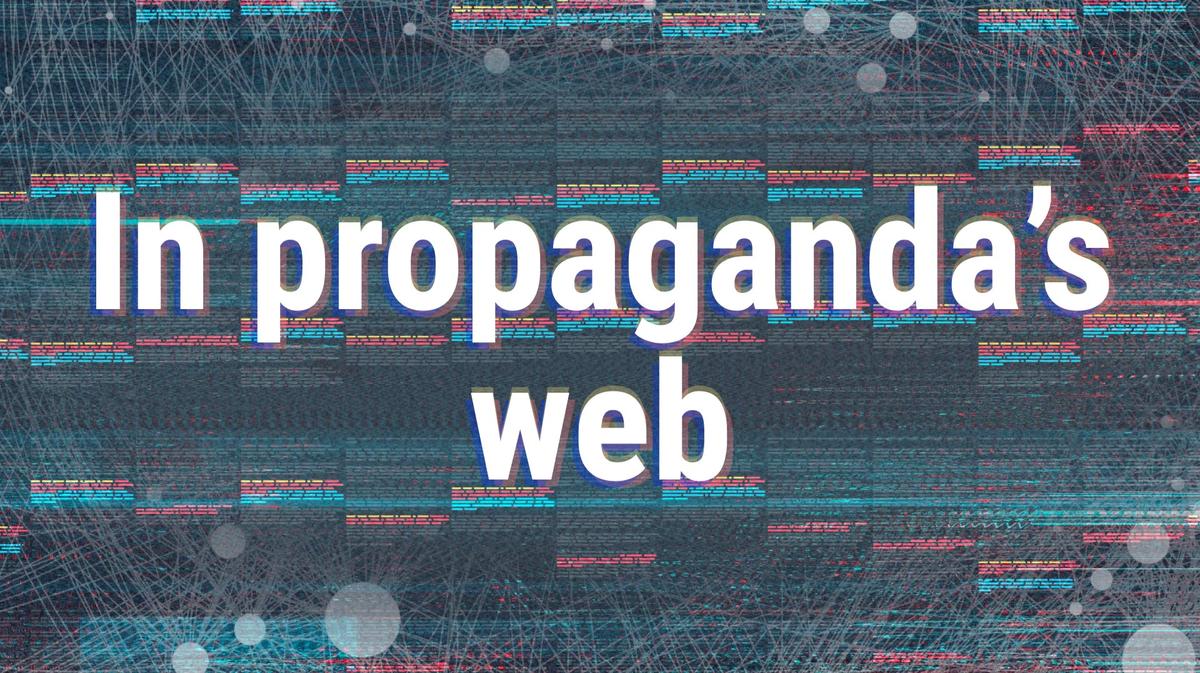You could be forgiven for thinking that the only reason more Russians don’t oppose the war in Ukraine is that they don’t know the whole truth, that independent sources of information simply aren’t available in Russia and that state propaganda has entirely filled the void. While it’s true that the Russian authorities have systematically squeezed out independent media and brought in military censorship, it’s not the whole story.
One of the country’s main propaganda organs, RIA Novosti, has been preparing Russians for this war for 10 years. To this end, it has used identical ideologically loaded phrases in tens of thousands of its news pieces, as if working to a script. In those pieces, it told Russians how to view what was happening around them — and what would happen after 24 February 2022.
Are we fighting Ukraine? That’s because they are killing civilians. Is the West imposing sanctions? That is because it supports “the Kiev regime”. Is Ukraine shelling the civilian population? They have been doing it for eight years. Is Russia mobilising? Yes, to protect civilians.
These propaganda narratives have helped millions of Russians accept a state of cognitive dissonance, resolve moral dilemmas, and come up with rational arguments to justify Russia’s war with Ukraine.
This war has had the support of at least half the Russian population for its almost-two-year duration. Can it really be that easy to make people believe that war is the best way to bring about peace with a neighbour?
It would have been a difficult undertaking were it sudden, but the process began over a decade ago, long before the full-scale Russian invasion of Ukraine.
At the end of 2013, at the height of the Ukrainian protests on Kyiv’s Maidan, one of the oldest news agencies in Russia, RIA Novosti, which was also then considered one of the most progressive and liberal state media outlets — was disbanded.
It then became part of the new state media group Rossiya Segodnya, a media monster that became an umbrella holding for multiple Russian media outlets. It was headed by TV presenter Dmitry Kiselyov, who promptly announced a change in editorial policy at a meeting with staff in mid-December that year.
“We often distort the picture and look at our country as if it were a foreign land in the name of objectivity. It seems to me that this period of detached, distilled journalism is over.”
Objectivity, Kiselyov said, was “a myth offered to and imposed upon us” and journalism’s mission should instead be the creation of values that make Russians one community and one country. Journalism, he concluded, was “a tool and resource for the country that allows it … to determine what is good and what is bad”.
Since then, RIA Novosti has published tens of thousands of news pieces with the same words or phrases to provide Russians with strong indications of “what is good and what is bad”. Any even mildly significant event in Russia or the rest of the world has for the past decade had an ideologically loaded explanation to accompany it. When repeated thousands of times, these explanations create an “illusory truth effect” — a cognitive distortion whereby people begin to believe something they have read so often.
By February 2022, RIA Novosti’s news content had not only made an enemy of Ukraine, but had also created a primitive and extremely convenient picture of the world in which Russia could do no wrong.
Join us in rebuilding Novaya Gazeta Europe
The Russian government has banned independent media. We were forced to leave our country in order to keep doing our job, telling our readers about what is going on Russia, Ukraine and Europe.
We will continue fighting against warfare and dictatorship. We believe that freedom of speech is the most efficient antidote against tyranny. Support us financially to help us fight for peace and freedom.
By clicking the Support button, you agree to the processing of your personal data.
To cancel a regular donation, please write to [email protected]

